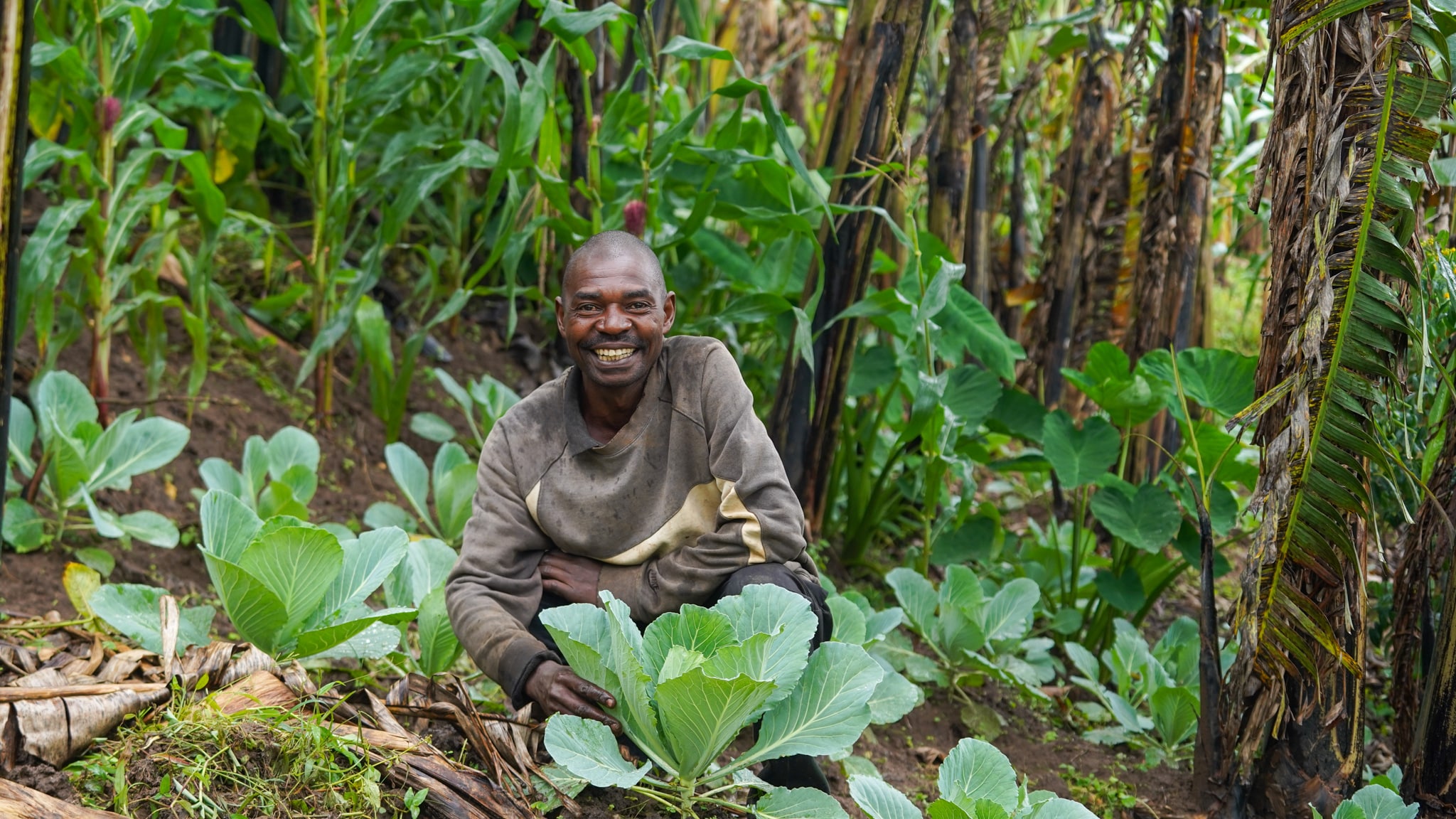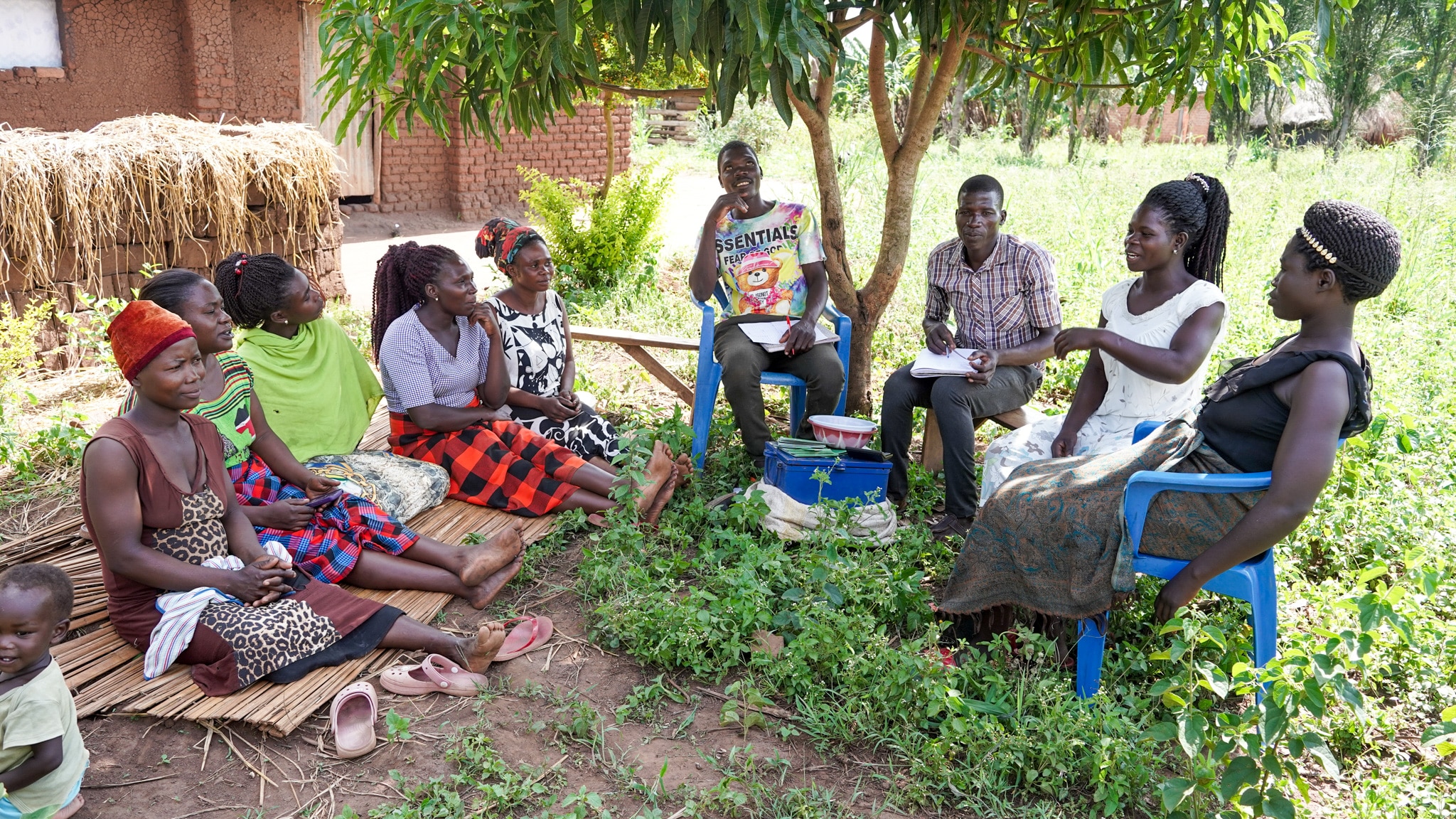A Promising Tomorrow

“Until a year ago, we had little income and scarce farmland. Poverty is a big issue, and we and the rest of the village are living on the extreme edge,” said Johnson, a subsistence farmer from a last-mile village in Mitooma. With no sustainable source of income, providing for a family of seven was very challenging. Johnson was not alone, further north from Mitooma, Emmanuel had similar concerns. “We didn’t have a proper roof; I had to cover my house with grass. Paying for my children’s education too was getting difficult,” said Emmanuel, a 30-year-old farmer in a village in Kiryandongo. “I did not want to continue like this; I wanted to build a secure future for my children,” he added.

When their communities partnered with RTV to sustainably increase agricultural production and income, both Emmanuel and Johnson attended training sessions on Good Agronomic Practices in their respective villages, among others. They learned about using good-quality inputs, better planting techniques, and establishing compound gardens for food security. “I learned how to get maximum output from a small piece of land, and we also received new seeds,” Johnson says. Emmanuel attended training sessions on financial literacy and the formation of the Village Savings and Loan Association (VSLA) and joined a VSLA hoping to access credit and enable him to make investments in his future. “I was a part of a savings group earlier, but it lacked discipline. It wouldn’t meet regularly, and often, people wouldn’t attend the meetings,” he said. As part of the VSLA training, RTV included support knowledge around the formation of the groups, including a democratic election of leadership positions, record keeping, identifying and setting a financial goal, and establishing bylaws.

During this process, Emmanuel was elected as the chairperson of a youth VSLA, where he and his group began saving $5,000 UGX per person each week.“Since I joined the VSLA that RTV helped form, my experience has been much better. All of our members are active, there is order, we save with a goal, and most importantly, we always have someone from RTV to guide us and answer our questions,” he said.
The change is already visible. Johnson planted beans, groundnuts, and vegetables for the next harvest cycle and noticed that the plants were healthier and better than before. “Earlier, I would get roughly 40 kg of beans from 2 kg seeds. But I more than tripled my harvest with the new methods and seeds,” Johnson said. Through loans from his VSLA, Emmanuel was able to pay for his children’s school fees, and gradually, as his contribution grew, he invested in hybrid seeds and is applying learnings from agricultural training to increase his farm yield. Not only has the VSLA supported Emmanuel and his family financially, but it has motivated him to try new things and improve his confidence, “I have been able to socialize and network with my community through the saving group. I also learned public speaking and tried it for the first time”, he adds.

With the consistently increasing income from his farming and affordable loans from his VSLA, Johnson renovated his house and expanded his farming land. But Johnson isn’t done yet. “I plan to borrow some money to invest further in my farms and buy goats,” he says, sharing his plans. Emmanuel, too, is expecting a good harvest, resulting in enough income to pay for a new roof. “I am hopeful about the future. I plan to build a better house with a good roof, buy a motorbike to transport produce to the market, and, someday, open a shop that my wife could run,” he says with a smile.
Be part of our journey. Support last-mile communities by supporting Raising The Village.
Let’s Stay Connected

